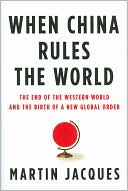The Brazil Reader: History, Culture, Politics
Bordering all but two of South America’s other nations and by far Latin America’s largest country, Brazil differs linguistically, historically, and culturally from Spanish America. Its indigenous peoples share the country with descendants of Portuguese conquerors and the Africans they imported to work as slaves, along with more recent immigrants from southern Europe, Japan, the Middle East, and elsewhere. Capturing the scope of this country’s rich diversity and distinction as no other book...
Search in google:
An interdisciplinary anthology that includes many primary resources never before published in English.
AcknowledgmentsA Note on StyleIntroduction1IOrigins, Conquest, and Colonial RuleThe Origin of Fire16Noble Savages20A Description of the Tupinamba25The First Wave33Letter to Governor Tome de Sousa37From the River of Jenero41The Sins of Maranhao43Minas Uprising of 172045Smuggling in the Diamond District52Decree Elevating Brazil to a Kingdom56IIImperial and Republican BrazilDeclaration of Brazilian Independence, 182263The Baron of Parnaiba65Uprising in Maranhao, 1839-184069A Paraiba Plantation, 1850-186076The Paraguayan War Victory Parade87A Vanishing Way of Life91A Mirror of Progress93Drought and the Image of the Northeast100Dom Pedro the Magnanimous104Solemn Inaugural Session of December 24, 1900107Intellectuals at Play109City of Mist110The Civilist Campaign113Gaucho Leaders, 1923: Photograph115Factory Rules, 1924116IIISlavery and Its AftermathThe War against Palmares125Slave Life at Morro Velho Mine131Scenes from the Slave Trade: Logbook Entries135Cruelty to Slaves138Slavery and Society143Abolition Decree, 1888145Laws Regulating Beggars in Minas Gerais, 1900146IVThe Vargas EraThe Social Question156Manifesto, May 1930158Heroes of the Revolution: Composite Postcard Photograph160The "Gold for Sao Paulo" Building, 1932162Where They Talk about Rosa Luxemburg166Two Versions of Factory Life172Seized Correspondence from Communists, 1935-1945176The Paulista Synagogue182Why the Estado Novo?184New Year's Address, 1938186Rural Life190A New Survey of Brazilian Life195General George C. Marshall's Mission to Brazil197Comments on the Estado Novo200Educational Reform after Twenty Years204Ordinary People: Five Lives Affected by Vargas-Era Reforms206Vargas's Suicide Letter, 1954222VSeeking Democracy and EquityRehearsal for the Coup231The Military Regime235Excerpts from the 1967 Brazilian Constitution238Tropicalism and Brazilian Popular Music under Military Rule241Literature under the Dictatorship248Pele Speaks254The Maximum Norm of the Exercise of Liberty258Families of Fishermen Confront the Sharks260The Reality of the Brazilian Countryside264The "Greatest Administrative Scandal"268Life on an Occupied Ship274A Letter from Brazil277Inaugural Address280Fernando Henrique Cardoso: Theory and Practice289Is Brazil Hopelessly Corrupt?295VIWomen's LivesAunt Zeze's Tears302Tarsila and the 1920s308The Integral Woman317The Children Always Had Milk319Women of the Forest323My Life327A Healer's Story331Sonia, a Middle-Class Woman334Family Life in Recife337Xuxa and the Televisual Imaginary343Dreams of Uneducated Women348VIIRace and Ethnic RelationsA Letter from Brazil, 1918354Growing Up Black in Minas Gerais359Exotic Peoples365Brazil: Study in Black, Brown, and Beige367Immigrant Ethnicity in Brazil374The Myth of Racial Democracy379The National Day against Racism382The Church Tries to Combat Prejudice384What Color Are You?386Mixed Blood391VIIIRealitiesThe Animal Game398How Brazil Works402Iansa Is Not Saint Barbara408Upward Mobility Is Possible411Crab and Yoghurt415Voices from the Pavement420Pixote's Fate423A Letter to President Cardoso430The History of the Huni Kui People432Urban Indians436Mayor Orders Billboard Shacks Destroyed441Cultural Imperialism at Its Most Fashionable447The Gay and Lesbian Movement in Brazil454Liberation Theology's Rise and Fall462IXSaudadesBananas Is My Business471The Invention of Tradition on Brazilian Radio474Bahia Music Story483O Axe de Zumbi487At Carnival490Two Poets Sing the New World491Two Essays on Sports497Suggestions for Further Reading505Acknowledgment of Copyrights511Index519
\ From the Publisher“A stellar collection of texts on Brazilian history and contemporary life. No ordinary reader, this volume goes below the surface to introduce an American audience to Brazil’s complexities and diversity.” - Foreign Affairs\ “Duke University Press has just brought out . . . the closest thing to a voyage around ‘the great green elbow’ that one of its novelists called his rich and varied country. The book shimmers with every type of essay, historiography, and literary tidbit.” - Rain City Review\ “Whether ingested in short sips or long draughts, The Brazil Reader has an accumulative weight, breadth, and durability. . . . [I]t’s a book that offers an intelligent and up-to-date survey of a vital and vibrant country. It’s hard to imagine how we were able to get along without it.” - Bondo Wyszpolski, Brazzil\ “The Brazil Reader is simply indispensable. . . .” - Julio César Pino, Hispanic American Historical Review\ “The Reader cannot fail to impress. . . . The specialist, the activist, the artist and the anonymous all find a space in The Brazil Reader, creating what the editors describe as a ‘balance of voices.’ In summary, for the well-heeled scholar or the curious undergraduate The Brazil Reader will present possibilities, challenges and thought-provoking reading.” - Jane-Marie Collins, Bulletin of Hispanic Studies\ “What gives The Brazil Reader its special cachet is freshness, sensitivity, and empathy in its diversity of perspectives on twentieth-century Brazil, from the top down, from the bottom up, and from somewhere in the middle.”—Stanley J. Stein, Princeton University\ “A worthy successor to the pioneering Peru Reader, this volume provides a comprehensive guide to Brazil’s history and culture from the Portuguese colonial past to the postmodern present. Defty crossing disciplines and integrating elite and popular realms, The Brazil Reader is certain to please both the serious student and the general reader.”—Gil Joseph, Yale University\ \ \








